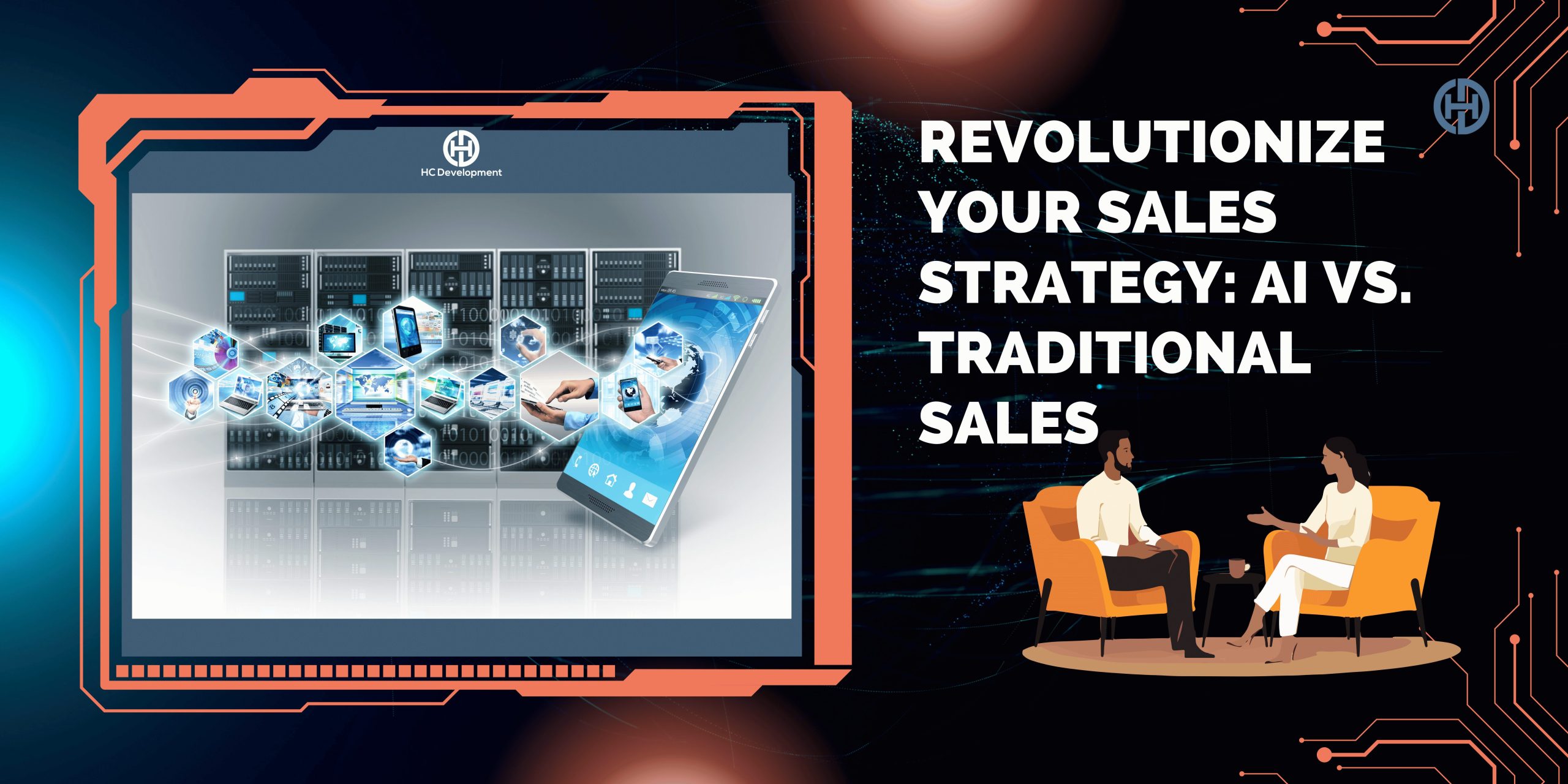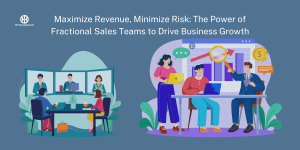In the rapidly evolving world of business, the sales process is undergoing a monumental shift. Artificial Intelligence (AI) has become a game-changer, offering innovative tools and strategies that challenge traditional sales approaches. While both AI and traditional sales methods have their advantages and disadvantages, understanding how they differ and how to integrate them can be the key to driving growth in today’s competitive landscape.
This article will provide a comprehensive comparison of AI-driven sales versus traditional sales methods, helping you determine which approach is best suited for your business in 2024 and beyond.
Revolutionize Your Sales Strategy: AI vs. Traditional Sales – Which Wins?
- Introduction to Sales in the Digital Age
- What is Artificial Intelligence in Sales?
- Traditional Sales: Tried-and-Tested Methods
- Comparing AI and Traditional Sales Techniques
- How AI Enhances Sales Efficiency
- The Role of Human Interaction in Sales
- Case Studies: Success Stories with AI-Driven Sales
- Challenges of Artificial Intelligence in Sales
- Combining AI and Traditional Sales for Maximum Impact
- The Future of Sales: AI, Human Salespeople, or Both?
1. Introduction to Sales in the Digital Age
In the age of digital transformation, businesses are increasingly seeking tools that streamline their processes and improve efficiency. Sales, a traditionally human-driven field, is no exception. While traditional sales techniques have been the backbone of business development for decades, AI is introducing new ways to engage prospects, nurture leads, and close deals. AI-driven sales tools leverage machine learning, data analytics, and automation to enhance the capabilities of sales teams. The question many businesses face today is whether to rely on these cutting-edge AI solutions or stick with traditional methods.
2. What is AI in Sales?
Artificial Intelligence in sales refers to the use of artificial intelligence technologies to automate, enhance, and streamline various aspects of the sales process. This includes lead generation, customer segmentation, personalized communication, and sales forecasting. AI-driven tools analyze vast amounts of data in real-time, allowing sales teams to make informed decisions, predict customer behavior, and engage with prospects more effectively.
- Key Components of AI in Sales:
- Predictive Analytics: AI algorithms can predict which leads are most likely to convert, enabling sales teams to focus their efforts on high-value prospects.
- Automation: AI automates repetitive tasks such as data entry, follow-up emails, and appointment scheduling, freeing up time for sales professionals to focus on relationship-building.
- Personalization: AI systems can personalize communication by analyzing customer preferences, previous interactions, and online behavior, resulting in more relevant outreach.
- Natural Language Processing (NLP): AI-powered chatbots and virtual assistants can engage with prospects in real-time, answering questions and providing personalized recommendations.
3. Traditional Sales: Tried-and-Tested Methods
Traditional sales rely on human interaction, intuition, and relationship-building. From cold calling and face-to-face meetings to networking events and trade shows, traditional sales methods emphasize personal connections and the art of persuasion. While these methods may seem outdated in the digital era, they remain effective in building trust and fostering long-term relationships with clients.
- Key Components of Traditional Sales:
- Cold Calling: A time-honored technique where sales professionals contact potential clients directly via phone or email.
- Face-to-Face Meetings: Building personal connections through in-person meetings, where salespeople can gauge body language and emotional responses.
- Networking: Attending events and engaging with prospects in social settings to build rapport.
- Referrals: Leveraging existing relationships to generate new business opportunities through word-of-mouth recommendations.
- Product Demonstrations: Showcasing a product or service in a live setting to highlight its benefits and features.
4. Comparing AI and Traditional Sales Techniques
When comparing AI-driven sales to traditional methods, several factors come into play, including efficiency, scalability, personalization, and the role of human interaction. Here’s a breakdown of how these two approaches stack up:
| Aspect | AI-Driven Sales | Traditional Sales |
|---|---|---|
| Efficiency | Highly efficient due to automation and data-driven decisions | Time-consuming; reliant on manual efforts |
| Personalization | Personalized at scale through data analysis | Personalized based on individual relationships |
| Scalability | Easily scalable with automated processes | Difficult to scale as it requires more human resources |
| Human Interaction | Limited human touch, mainly handled by machines | High degree of human interaction and trust |
| Lead Generation | AI identifies and targets the most promising leads | Salespeople manually seek out prospects |
| Decision-Making | Data-driven and based on algorithms | Based on experience, intuition, and relationship-building |
5. How AI Enhances Sales Efficiency
AI dramatically improves sales efficiency by automating repetitive tasks, enabling real-time decision-making, and providing insights that help sales teams prioritize their efforts. Here’s how AI helps streamline various stages of the sales process:
- Lead Scoring and Qualification: AI algorithms can score and prioritize leads based on their likelihood to convert, saving time and helping sales teams focus on the most promising opportunities.
- Automated Follow-Ups: AI-powered systems can automatically send follow-up emails, schedule appointments, and respond to inquiries, ensuring that no lead falls through the cracks.
- Sales Forecasting: AI tools can analyze historical data and trends to provide accurate sales forecasts, allowing businesses to make informed decisions about resource allocation and strategy.
- Real-Time Insights: AI provides sales teams with real-time data on customer behavior, enabling them to engage prospects with relevant offers at the optimal time.
6. The Role of Human Interaction in Sales
While AI-driven sales offers efficiency and scalability, human interaction remains a crucial element of the sales process. Trust, empathy, and relationship-building are areas where human salespeople excel. In high-stakes deals, particularly in industries like real estate, B2B services, and luxury goods, personal relationships can be the determining factor in closing a deal.
- Human Touch vs. AI: AI can automate outreach and engagement, but it cannot replace the emotional intelligence, empathy, and nuanced communication that human sales professionals bring to the table. Customers still value the personal touch when making significant purchasing decisions.
- Blending AI with Human Interaction: The most successful sales teams combine AI with traditional sales techniques. AI handles the repetitive tasks and data analysis, while human salespeople focus on building relationships, negotiating deals, and providing personalized service.
7. Case Studies: Success Stories with AI-Driven Sales
Several companies have successfully implemented AI-driven sales strategies, resulting in increased efficiency, higher conversion rates, and improved customer satisfaction. Here are a few examples:
- Company A (SaaS): By using AI to automate lead scoring and follow-up emails, Company A saw a 30% increase in conversion rates and a 20% reduction in the time spent on administrative tasks.
- Company B (E-commerce): This online retailer used AI to analyze customer behavior and recommend products, resulting in a 25% increase in average order value and a 15% boost in customer retention.
- Company C (Financial Services): AI-powered chatbots helped this financial services company engage with customers 24/7, answering questions and guiding prospects through the sales funnel. As a result, the company saw a 40% increase in lead generation.
8. Challenges of Artificial Intelligence in Sales
While AI offers many advantages, it is not without its challenges. Businesses must be aware of the potential limitations and pitfalls when implementing AI-driven sales strategies:
- Data Quality: AI systems rely on accurate, high-quality data to function effectively. Poor data can lead to incorrect predictions and misguided outreach efforts.
- Lack of Human Touch: As mentioned earlier, AI lacks the emotional intelligence and empathy that human salespeople bring. Over-reliance on AI can lead to a lack of personal connection with prospects.
- Cost: Implementing AI solutions can be expensive, especially for small businesses. While AI can save money in the long run by improving efficiency, the initial investment can be a barrier for some companies.
- Ethical Concerns: The use of AI raises ethical questions about data privacy and the potential for AI to replace human jobs. Businesses must navigate these challenges carefully to maintain trust with their customers and employees.
9. Combining AI and Traditional Sales for Maximum Impact
Rather than viewing AI and traditional sales as mutually exclusive, businesses should consider combining the two approaches for maximum impact. Here’s how you can integrate AI into your traditional sales process:
- Use AI for Lead Generation: AI tools can help identify and qualify leads, while your sales team focuses on building relationships and closing deals.
- Leverage AI for Personalization: Use AI to gather insights about your prospects and personalize your outreach efforts. Then, have your salespeople engage with leads in a meaningful, human way.
- Automate Administrative Tasks: Let AI handle repetitive tasks like data entry, follow-ups, and appointment scheduling, freeing up time for your sales team to focus on high-value activities.
- Blend AI-Driven Insights with Human Intuition: AI can provide data-driven insights, but don’t forget the value of human intuition and experience. Sales professionals should use AI as a tool to enhance their decision-making, not replace it.
10. The Future of Sales: AI, Human Salespeople, or Both?
The future of sales will likely be a combination of AI-driven tools and traditional sales techniques. As AI technology continues to advance, it will become an even more integral part of the sales process. However, human interaction will remain crucial, particularly in industries where trust, empathy, and relationship-building are essential.
Sales teams that embrace AI while maintaining a focus on personal connections will be best positioned to succeed in the evolving sales landscape.
To know more about Business Growth and Strategy Click Here
Subscribe : Youtube




